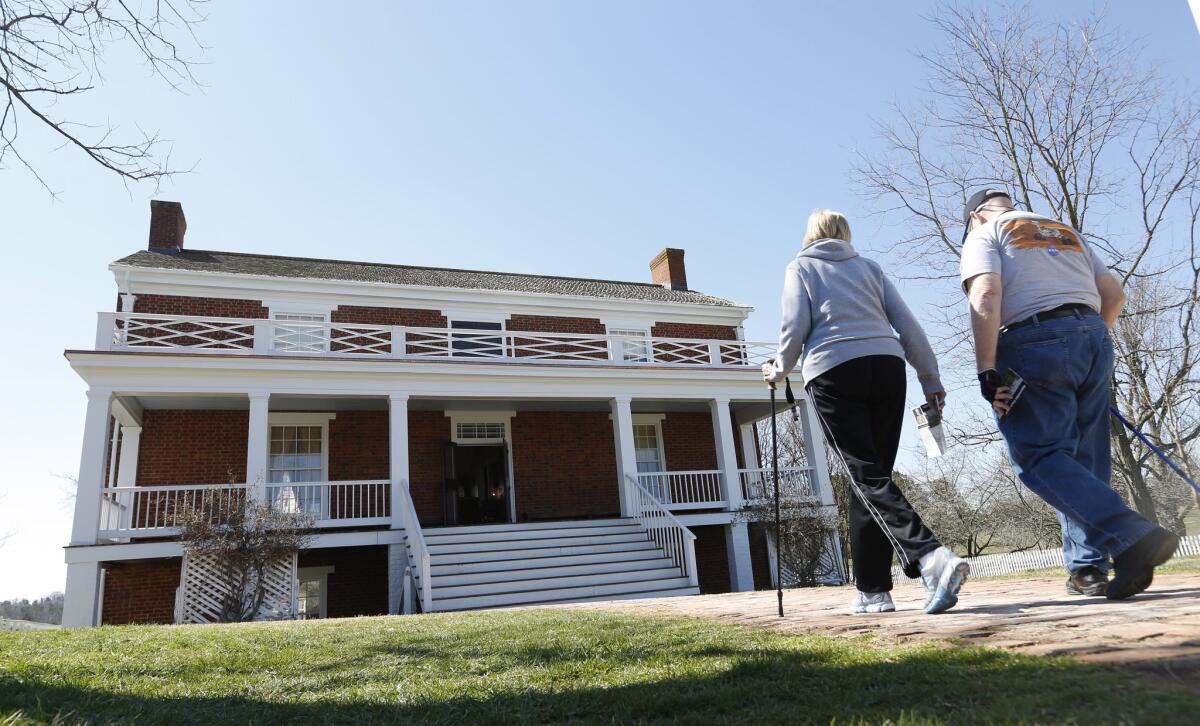Opinion: For this man, the Civil War meant war <i>and</i> peace, too close for comfort

The Civil War, which drew to an end 150 years ago this week with the surrender of Robert E. Lee, is rich with stories — most of them horrendously tragic.
One of them, though, is really a quirky footnote, It’s stuck with me, and I remembered it again after interviewing UCLA historian Joan Waugh for my “Patt Morrison Asks” column.
It’s the story of Wilmer McLean, a grocer from Virginia, and no oddsmaker would have given anybody a line on what happened to him.
He was living in Manassas, Va., early in the war when a Confederate general took over his house as a headquarters. That general, P.G.T. Beauregard, wrote laconically about the “comical” effect of a shell blowing up his dinner after it landed in the fireplace. McLean no doubt found it less amusing.
To get his family out of harm’s way — and to make his business of selling sugar to the Confederates easier — McLean decided to move. The spring of 1863 found the McLeans in a new house 120 miles away, surely far from battle and strife, in little place called Appomattox Court House
Two years later, in early April 1865, soldiers came knocking on the McLeans’ door again — this time in blue uniforms. In their parlor and on their tables and chairs, on April 9, contending generals Robert E. Lee and Ulysses S. Grant signed and sealed Lee’s surrender.
Now, souvenir hunting isn’t new. Composer Franz Liszt generated a mania among his fans; one woman is said to have retrieved his discarded cigar butt from the street and encased it in a diamond locket.
The witnesses to history in the McLean parlor wasted no time. A doll that sat on the mantelpiece during the signing was carried off by one captain, who called it the “silent witness”; it was returned to Appomattox in 1992.
Maj. Gen. Edward Ord, of California’s Ft. Ord fame, paid a huge $40 for the table where Lee signed the surrender; Maj. Gen. Phil Sheridan paid less for the one Grant used, and gave it to George Custer to cart away. (Both tables wound up at the Smithsonian.)
McLean sold the house in 1867 — what was left of it, after the mobs of souvenir hunters — and moved back to Manassas for some peace and quiet. In later years he liked to say, “The war began in my frontyard and ended in my front parlor.”
Nowadays, he’d have a book deal, a moment on the “Today” show, and a gig on a reality show.
Follow Patt Morrison on Twitter @pattmlatimes
More to Read
A cure for the common opinion
Get thought-provoking perspectives with our weekly newsletter.
You may occasionally receive promotional content from the Los Angeles Times.







